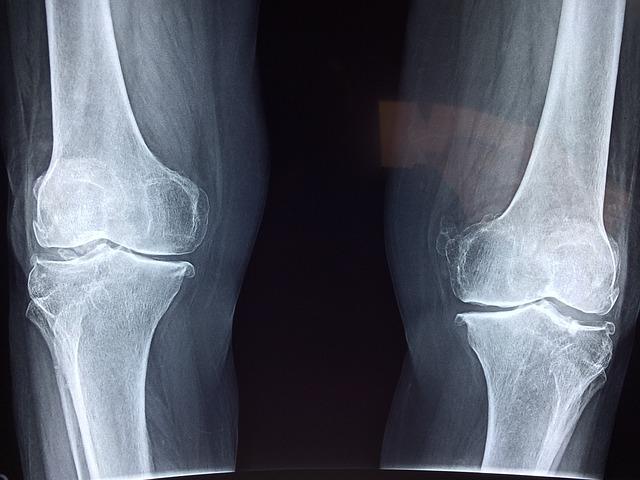Our furry friends bring immense joy and companionship into our lives, and as pet owners, ensuring their well-being is a top priority. Just like humans, dogs can experience joint issues that affect their mobility and overall quality of life. Fortunately, a nutritious diet can play a significant role in maintaining and even improving joint health. In this article, we will explore a selection of foods that are not only delicious but also packed with nutrients that support healthy joints in dogs. Whether your canine companion is a sprightly puppy or a wise old senior, incorporating these foods into their diet can help keep them active and happy for years to come. Let’s dive into the world of canine nutrition and discover how you can help your dog lead a life full of play and comfort.
Understanding the Importance of Joint Health in Dogs
Maintaining the vitality of your furry friend involves more than just daily walks and regular vet visits; it also includes ensuring their diet is rich in nutrients that support their joint health. Dogs, like humans, experience wear and tear in their joints as they age, which can lead to discomfort and decreased mobility. Fortunately, incorporating specific foods into their diet can make a significant difference. Here are some beneficial options to consider:
- Fatty Fish: Fish like salmon and sardines are excellent sources of Omega-3 fatty acids, known for their anti-inflammatory properties. These nutrients help reduce joint inflammation and support overall joint health.
- Bone Broth: Rich in collagen, glucosamine, and chondroitin, bone broth is a natural way to support cartilage health and joint flexibility. It’s a delicious treat that can be easily added to your dog’s meals.
- Sweet Potatoes: Packed with beta-carotene, fiber, and vitamins, sweet potatoes are not only tasty but also beneficial for reducing inflammation and boosting immune function.
- Turmeric: Known for its powerful anti-inflammatory effects, turmeric can be a game-changer for dogs with joint issues. A small sprinkle over their food can help ease joint pain and stiffness.
Incorporating these foods into your dog’s diet can play a pivotal role in maintaining their joint health, ensuring they stay active and happy for years to come. Always consult with your veterinarian before making significant changes to your dog’s diet, especially if they have specific health concerns.
Nutrient-Rich Foods to Boost Your Dogs Joint Health
Ensuring your dog gets the right nutrients can make a significant difference in maintaining their joint health and overall vitality. Certain foods are particularly beneficial in providing the essential vitamins and minerals that support joint function and reduce inflammation. Here are some nutrient-rich foods you can incorporate into your dog’s diet:
- Fatty Fish: Salmon, mackerel, and sardines are excellent sources of omega-3 fatty acids, known for their anti-inflammatory properties and ability to improve joint health.
- Bone Broth: Rich in glucosamine and chondroitin, bone broth can help lubricate your dog’s joints, promoting better mobility and comfort.
- Leafy Greens: Vegetables like spinach and kale provide antioxidants and vitamins C and E, which are crucial for maintaining healthy cartilage and connective tissue.
- Blueberries: Packed with antioxidants, blueberries help combat oxidative stress and inflammation, offering protection for your dog’s joints.
- Sweet Potatoes: High in beta-carotene and vitamin C, sweet potatoes support collagen production, which is essential for joint health.
Incorporating these foods into your dog’s diet can be a delightful way to boost their joint health and ensure they remain active and happy. Always consult with your veterinarian before making significant changes to your dog’s diet to ensure it meets their specific health needs.
Incorporating Omega-3 Fatty Acids for Enhanced Mobility
Omega-3 fatty acids are a powerful ally in maintaining your dog’s joint health and mobility. These essential fats, commonly found in fish oil, have been shown to reduce inflammation, alleviate joint stiffness, and improve overall joint function. By integrating omega-3-rich foods into your dog’s diet, you can help support their active lifestyle and comfort. Here are some excellent sources of omega-3 fatty acids:
- Salmon: A rich source of omega-3s, salmon is not only delicious but also supports joint lubrication and flexibility.
- Sardines: These small fish are packed with essential fatty acids and can be easily added to your dog’s meals for a nutritious boost.
- Flaxseed Oil: For dogs that may not tolerate fish, flaxseed oil is a plant-based alternative that offers similar anti-inflammatory benefits.
- Chia Seeds: Known for their high omega-3 content, chia seeds can be sprinkled over your dog’s food for an extra health kick.
Incorporating these foods into your dog’s diet not only enhances their joint health but also contributes to a shiny coat and a healthy heart. Always consult with your veterinarian before making significant changes to your dog’s diet to ensure the best outcomes for their health.
Delicious Treats and Supplements for Happy, Active Dogs
When it comes to keeping your furry friend bouncing with joy, incorporating foods that promote joint health is a thoughtful approach. Omega-3 fatty acids, found in fish oil, are renowned for their anti-inflammatory properties and are a delicious addition to your dog’s diet. These healthy fats not only support joint health but also contribute to a shiny coat and healthy skin.
Incorporating glucosamine and chondroitin into your dog’s meals can be a game-changer. These natural compounds are often found in supplements but can also be sourced from foods like chicken feet and beef trachea. They help maintain cartilage and joint fluid, ensuring your pup can enjoy long walks and playful fetch sessions. Here’s a list of some joint-supporting foods to consider:
- Salmon or mackerel
- Sweet potatoes
- Bone broth
- Blueberries
- Green-lipped mussels
By incorporating these treats and supplements, you’ll not only be supporting your dog’s joint health but also enhancing their overall well-being. A happy, active dog is a healthy dog!

